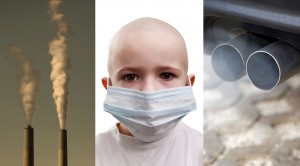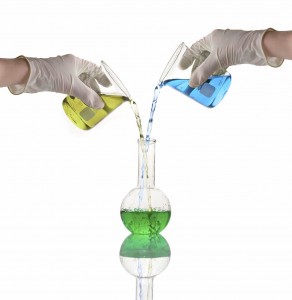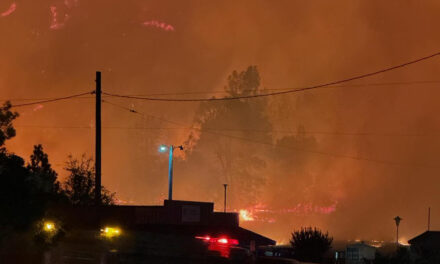- Tahoe’s Nevada Beach Tops the List of Hard-to-Book Campgrounds - 07/17/2024
- Cannabis Watershed Protection Program Cleans Up Illegal Grow Sites - 07/10/2024
- French Fire - 07/05/2024

Most researchers now agree that environmental factors -– including exposure to chemicals and pollution -– play a significant role today in determining who gets cancer and who doesn't. Image credit Thinkstock
How clear (or not) are the links between the rising incidents of cancers around the world and the prevalence of synthetic chemicals in modern society?
— Alberto Buono, Lee, MA
With the World Health Organization hinting that cancer could unseat heart disease as the leading cause of death around the world, it’s no surprise that per capita cancer incidence is on the rise globally. In fact, cancer is the only major cause of death that has continued to rise since 1900. While it might depend on whom you ask, most researchers now agree that environmental factors—including exposure to chemicals and pollution—play a significant role today in determining who gets cancer and who doesn’t.
A blue ribbon panel of cancer experts initially convened by President George W. Bush researched hundreds of studies and concluded in 2010 (in its 240-page report, “Reducing Environmental Cancer Risk: What We Can Do Now”) that our exposure to chemicals, pollution and radiation is to blame for the uptick in cancer deaths. “The American people—even before they are born—are bombarded continually with myriad combinations of these dangerous exposures,” the panel reported. “With the growing body of evidence linking environmental exposures to cancer, the public is becoming increasingly aware of the unacceptable burden of cancer resulting from environmental and occupational exposures that could have been prevented through appropriate national action.”
The panel cited grim statistics about cancer’s march, noting that 41 percent of Americans will be diagnosed with cancer at some point in their lives, with 21 percent likely to die from it. Cancer researchers fear that our reliance on chemicals is the main culprit, as borne out by hundreds of studies.
To wit, a 2000 study involving the examination of health records of more than 44,000 pairs of twins across Scandinavia found that “inherited genetic factors make a minor contribution” in causing most cancers but that “the environment has the principle role in causing sporadic cancer.” A 2010 UK study, whereby researchers investigated the level of chemical exposure of more than 1,100 women during their employment history, found that those study subjects who had been exposed to various industrial chemicals and airborne hydrocarbons were at least three times more likely to get breast cancer later on than women with little or no exposure in their backgrounds.
Not everyone agrees. Writing in Forbes magazine, Henry I. Miller and Elizabeth Whelan of the industry-friendly American Council on Science and Health argue that the findings of the presidential panel are based on politics not science: “If the authors had only bothered to consult a standard textbook on cancer epidemiology, they would have learned that lifestyle factors such as smoking, obesity, excessive alcohol consumption and overexposure to sunlight—not chemicals in air, water and food—are the underlying causes of most preventable human cancers.”
While few today would doubt the health risks of such personal lifestyle factors, the President’s cancer panel nevertheless concluded that “the burgeoning number and complexity of known or suspected environmental carcinogens compel us to act to protect public health,” and urged President Obama to use the power of his office to “remove the carcinogens and other toxins from our food, water and air that needlessly increase health care costs, cripple our nation’s productivity, and devastate American lives.”
CONTACTS: President’s Cancer Panel, deainfo.nci.nih.gov/advisory/pcp/; American Council on Science and Health, www.acsh.org.
EarthTalk® is written and edited by Roddy Scheer and Doug Moss and is a registered trademark of E-The Environmental Magazine (www.emagazine.com). Send questions to: earthtalk@emagazine.com. Subscribe: www.emagazine.com/subscribe. Free Trial Issue: www.emagazine.com/trial.













